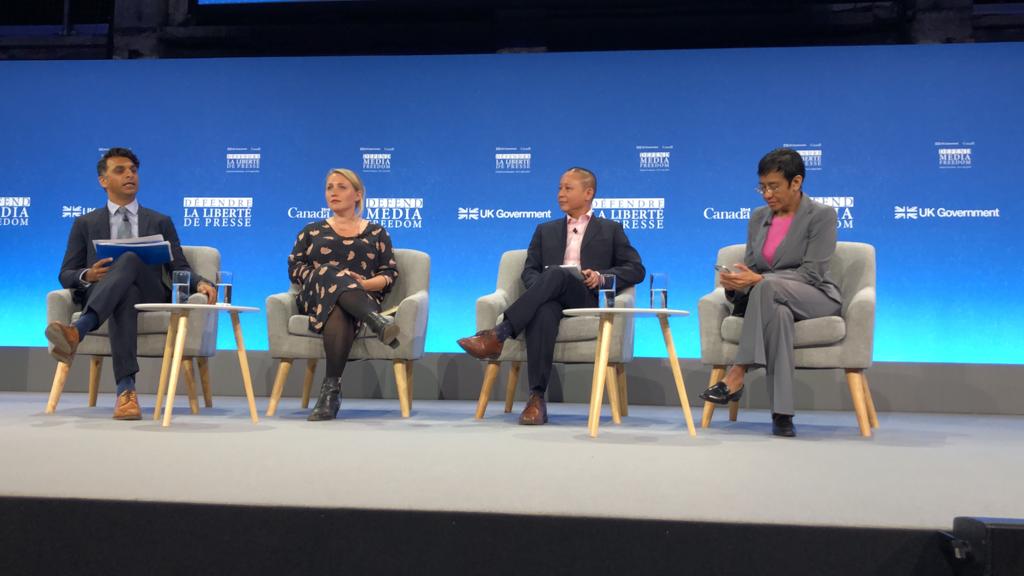Three things we need to do next
At last week’s Global Conference for Media Freedom, I realised that every plenary and almost every panel was focussed on diagnosing the problem of declining press freedom. Outlining the nature and quantity of attacks that journalists face was an important and necessary step. As a result all attendees, I hope, are on the same page about how urgent and difficult the problem is. However, we must move forward from this diagnosis. Now is the time for action.
We saw a huge appetite and intent, amongst many governments, media organisations, and civil society to halt the decline in media freedom. How do we turn that intent into real, concrete outcomes?
There are three actions that our community - governments, civil society organisations, and funders that want to fight for press freedom - must do now:
1. Provide radically more funding for journalism via an International Fund for Public Interest Media
Currently just 0.3% of overseas development aid goes into funding media: for us to have a meaningful impact on this crisis, we estimate that needs to increase to 1%, which would result in roughly an additional $1bn a year. To facilitate this, we have proposed creating a new International Fund for Public Interest Media that would fund investigative journalism, national and regional reporting organisations, and media development. We received a great deal of positive feedback at the conference and it’s now generating momentum; we were especially pleased to hear Minister Baldwin, joint Minister of State at the Foreign & Commonwealth Office and for International Development in the UK, indicate her enthusiasm for the fund.
2. Strong co-ordinated action amongst governments to fulfill the requests put forward by the 33 media freedom organisations ahead of the conference
In short, the organisations demanded that the gathered states (1) release all imprisoned journalists; (2) stop killing, attacking, and denigrating journalists; and (3) investigate and prosecute the murder of all journalists. We believe that, in order to achieve this, the government champions of press freedom - those like the UK and Canada which led the Global Conference for Media Freedom and others - must take rapid, collective, high level diplomatic and economic action.
3. Significant support for the legal defence of journalists
There have been important steps taken to ensure the protection of journalists: we welcome the Foreign Commonwealth Office’s announcement of funds for legal defence, and we also welcome that Amal Clooney and her team have taken on the case of Maria Ressa, which is clearly a landmark case for press freedom. But there are many, many more journalists who do not have Maria’s profile or legal team, and who are still under threat. We also need to support organisations like the Media Legal Defence Initiative (MLDI), which helps journalists fight the politically motivated cases lodged against them. MLDI works in 52 countries, have been successful in 70% of their cases, and 90% of the journalists that they work with continue to report after legal attacks. Their model works, but what’s holding them back is funding.
If we can do these three things, then, and only then, can we take a meaningful step towards global media freedom.
